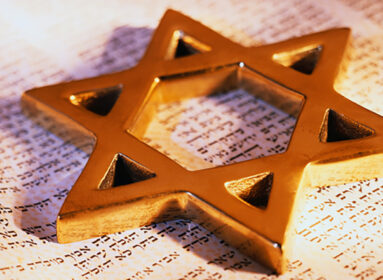
By Rabbi Tzvi Hersh Weinreb
M
any years ago, on the occasion of this week’s Torah portion, Ki Tetzei, I was conducted a Friday morning lesson on the parish with a group of teenagers, frustrated by the fact that they could find little relevance in many of the biblical passages that we were studying. I told them that I would challenge the entire congregation to find relevance in some of the passages of that week’s parsha, Ki Tetzei.
I stood up that Saturday morning and began by quoting the following verse: “If you see your fellow’s donkey or ox fallen on the road, do not ignore it; you must help him raise it.” (Deuteronomy 22:4) Rashi, following the explanation of the Talmud, understands this to mean that if the donkey’s pack falls off his back you must help your friend replace it there. This is the mitzvah known as te’inah, or uploading.
I challenged the audience with the following question: “Of what possible relevance is placing a fallen burden back on a donkey to us in our daily lives? When is the last time you met a donkey or an ox on the road, with or without a sack on the ground beside it?”
I then asked the audience to take out their Chumashim, their Bibles, and turned back to a passage we had studied together during the previous winter in the Torah portion of Mishpatim. There we read, “When you see the donkey of your enemy lying under its burden and would otherwise refrain from helping him, you must nevertheless help him.” (Exodus 23:5)
Rashi, again following the Talmud, sees this as the mitzvah of perikah, of helping to unload the donkey of its burden, and helping even one’s enemy in the process. “Now I understand,” I argued to the audience, “that the lesson of helping one’s enemy may be a relevant, if unpopular, one. But unloading a donkey? When was the last time anyone here did that?”
Then I announced a contest to be judged by myself and two congregants, in which each congregant was asked to write your their own answers to these questions.
As the second runner up – that is, the third of the top three responses – we chose the answer submitted by our a young student who found the answers to most of his questions in the Talmud. He reminded us of the passage in Tractate Bava Metzia which imagined a situation in which a person would have to choose between the mitzvot of uploading and unloading, between te’inah and perikah.
The Talmud describes the dilemma of the person who encounters not one, but two, donkeys. One donkey has its fallen cargo on the ground next to it; the other is bent under its burden. You have time for only one donkey. Which one do you attend to?
The Talmud answers that your priority is to unload the overburdened donkey. The Jewish value of tza’ar ba’alei chayim, sensitivity to the suffering of animals, trumps the mitzvah of te’inah. “Surely teaching about the need to avoid cruelty to animals is a relevant lesson,” argued the budding Talmudic scholar.
The runner up, number two in the contest, was a psychologist. “Every day,” he asserted, “I help to unload peoples’ burdens. I try to listen to them and to somehow lighten the weight that they feel. That’s perikah. And then there are those whom one must encourage to ‘upload’ the packs on their backs and to ‘keep on truckin,’ to get back on the road, and to get on with their lives. That’s te’inah.”
Our panel of judges was in for a surprise when it came to the contestant who won the grand prize. Of all the many members of the synagogue, it was the aging cantor who was clearly the winner. His voice was far from what it once was, but we kept him on, and indeed cherished him, for his genuine piety and sincere humanity.
“Whenever I stand in front of the congregation,” he said, “and anticipate the difficulty I am about to have in reaching the high notes, I appreciate those of you who sing and chant along with me and help me achieve those high notes. You uplift me. When you do that, you fulfill the mitzvah of te’inah. And as I falter in trying to descend the musical ladder to those lower notes, and you, the congregation, come to my aid with your voices, you help lower my burden, and you perform the mitzvah of perikah.
We are told that there are 70 facets to the Torah. We had about 70 contributions to our contest that Shabbat. I have shared only the top three with you, and challenge you to come up with yet others.
Rabbi Tzvi Hersh Weinreb is the Executive Vice President, Emeritus of the Orthodox Union.








 Southern New England Jewish Ledger
Southern New England Jewish Ledger









